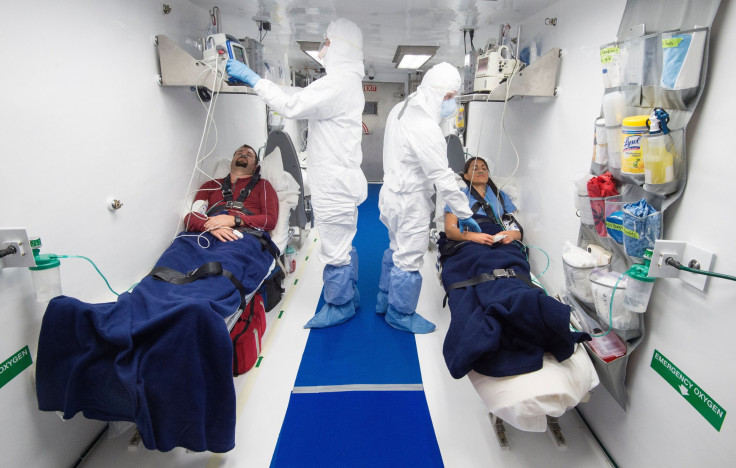Ebola Virus: Researchers Test Successful Vaccine For Outbreak, Symptoms

Researchers at St. George’s, University of London, say they have successfully tested a vaccine that is safe for both children and adults.
The worst outbreak of the Ebola virus just ended in 2016 after it infected more than 28,000 people across the globe, and killed about 11,300 people. West Africa experienced the largest outbreak of Ebola in history starting in 2014, prompting scientists to work with non-governmental organizations as well as governments to combat its spread.
Now, a group of U.K. scientists say they see promising results for a safe Ebola vaccine according to data published this week in the journal PLOS Medicine. Currently, there is no FDA-approved vaccine or medicine available for Ebola, according to the CDC.
"[It’s] an unprecedented Ebola outbreak showed how it is possible for academics, non-governmental organizations, industry and funders to work effectively together very quickly in times of medical crisis,” said Professor Sanjeev Krishna of St. George’s University of London’s Institute for Infection and Immunity. “The results of the trial show how a vaccine could best be used to tackle this terrible disease effectively."
Krishna reiterated that the vast network to disperse such a vaccine is nearly as important as the vaccine itself.
"We need a system of specialists, medical experts and organizers that maintains vigilance against outbreak diseases like Ebola,” he added. “We should continue to improve ways to make, evaluate and deliver vaccines when they are needed, often in parts of the world lacking in infrastructure for diagnosing infections and providing treatments."
Professor Krishna was among a group of experts called VEBCON, which was organized by the WHO in August 2014 in Geneva to combat the deadly outbreak.
The researchers hope to give lower dosages of the vaccine, which contains a non-infectious portion of a gene taken the Zaire Ebola virus strain. The St. George’s research team worked with colleagues on the vaccine trials in Gabon. This vaccine is one of two being analyzed as a “candidate” for the World Health Organization to identify urgently a vaccine to combat the Ebola virus outbreak in West Africa.
The Centers for Disease Control and Prevention lists fever, headache, muscle pain and weakness as the symptoms of Ebola – which can make identifying the presence of the virus difficult in comparison to illnesses such as the flu. However, symptoms may appear anywhere from 2 to 21 days after exposure to Ebola, but the average is 8 to 10 days. According to the CDC, “recovery from Ebola depends on good supportive clinical care and the patient’s immune response. People who recover from Ebola infection develop antibodies that last for at least 10 years.”
Progress on curbing the virus has been consistent as the WHO declared the end of the Ebola virus in Congo in July.
© Copyright IBTimes 2024. All rights reserved.











